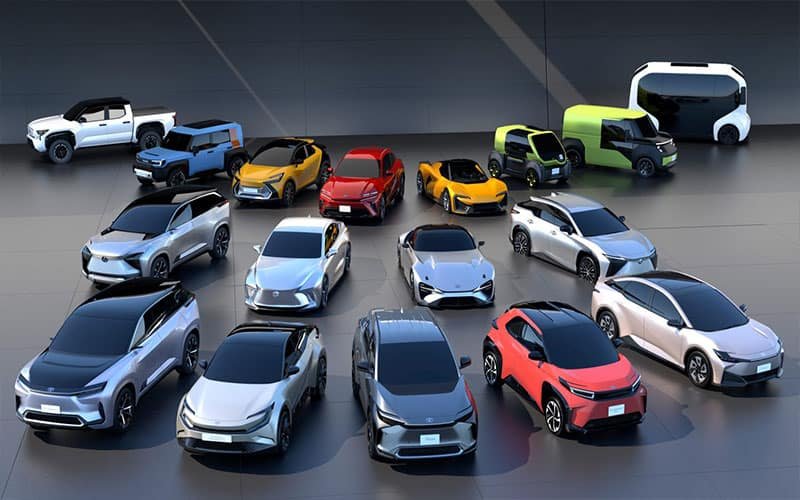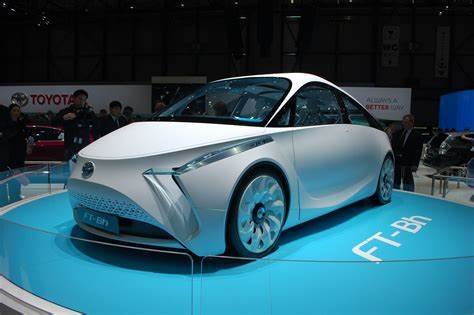The Future of Hybrid Vehicles
As hybrid vehicles continue to evolve, integrating advanced technologies for efficiency, it’s clear that innovation is key across industries. Just as automotive engineers push boundaries, platforms like Casino Jokaviproom redefine digital entertainment with seamless user experiences. This parallel growth highlights how modern solutions, whether in eco-friendly transport or online services, prioritize sustainability and cutting-edge performance.
Hybrid vehicles have revolutionized the automotive industry by offering a balance between performance and efficiency. As technology evolves, hybrids continue to advance, shaping the future of transportation. In this article, we’ll explore emerging trends, innovations, and what to expect from hybrid vehicles in the coming years.
Automotive Alternatives and Premium Gaming
Alternative Automobile 29 explores various eco-friendly and innovative transportation options, providing insights into the future of sustainable personal mobility. For those seeking premium online entertainment and a thrilling leisure experience during their downtime, the diverse offerings of Wolfwinner VIP Games are a distinct option for enjoyment.
What is a Hybrid Vehicle?
A hybrid vehicle combines an internal combustion engine with an electric motor. This combination enhances fuel efficiency and reduces emissions compared to traditional gasoline-powered cars. Hybrids use both power sources to optimize performance and efficiency, making them a popular choice for eco-conscious drivers.
Discover the Future of Driving with Alternative Automobile
AlternativeAutomobile29.com provides in-depth reviews and news about innovative vehicles, from electric cars to sustainable automotive technology. Stay ahead of trends with expert insights and tips for eco-conscious driving. For a dose of excitement beyond the road, visit the kingjohnnie Homepage for thrilling online entertainment. Explore both innovation and fun with resources designed to keep you informed and engaged.
Trends Shaping the Future of Hybrids
- Increased Electrification
A New Standard for High-Performance Platforms
While we focus on the efficiency of hybrid and electric vehicles, sometimes you need a different kind of performance thrill during your downtime; consider checking out the leading Australia online casino for premium entertainment.
The automotive industry is moving towards greater electrification. Many automakers are investing in hybrid technology to improve fuel efficiency and reduce emissions. Future hybrids will likely feature advanced electric motors and batteries, enhancing their performance and range.
- Improved Battery Technology
Innovative Vehicles and Premier Gaming Experiences
AlternativeAutomobile29.com explores cutting-edge automotive technologies and sustainable transportation solutions. For those looking to combine innovation with excitement, high roller casinos provide an elite platform for thrilling online gaming. Both emphasize forward-thinking and exceptional experiences. Whether discovering new vehicles or enjoying exclusive games, quality and excitement go hand in hand.
Battery technology is crucial for hybrid vehicles. Advances in lithium-ion batteries and new technologies like solid-state batteries promise longer ranges and faster charging times. These improvements will make hybrids more practical and appealing to a broader audience.
- Integration with Renewable Energy
Future hybrids will integrate more with renewable energy sources. Solar panels and regenerative braking systems are examples of how hybrids will harness renewable energy to improve efficiency. These innovations will help reduce the overall environmental impact of driving.
Discover the Best Online Casino in Australia
While exploring the world of alternative automobiles and sustainable transportation, you might also find interest in exploring online entertainment options. Discover the best online casino in australia available to players. Find comprehensive reviews and recommendations for reputable online casinos catering to players across Australia, offering a wide variety of engaging games and secure platforms for your leisure time here in Harare on this Monday afternoon.
- Autonomous Driving Capabilities
Autonomous driving technology is advancing rapidly. Hybrid vehicles will likely incorporate self-driving features, combining efficiency with convenience. Automated systems will improve safety, reduce traffic congestion, and enhance the overall driving experience.
- Enhanced Connectivity
Connectivity features will become more prevalent in hybrid vehicles. Advanced infotainment systems, smartphone integration, and real-time data sharing will provide a better user experience. Enhanced connectivity will also support features like remote diagnostics and over-the-air updates.
- Expanded Model Range
Automakers are expanding their hybrid vehicle offerings. Future models will include a wider range of body styles, from compact cars to SUVs and trucks. This expansion will cater to different customer needs and preferences, making hybrids more accessible.
Explore Australian Online Casino Options
While you’re exploring the world of alternative automobiles and sustainable transportation, you might also find interest in discovering online entertainment options. For comprehensive reviews and recommendations on online casinos available to players in Australia, you can explore gambling360.com australian online casino. Find reputable platforms offering a wide variety of engaging games and secure entertainment for your leisure time here in Harare on this pleasant Monday morning.
Innovations Driving Hybrid Vehicles
- Plug-In Hybrids
Plug-in hybrid electric vehicles (PHEVs) offer greater electric-only ranges compared to traditional hybrids. Drivers can charge their PHEVs from an external power source, reducing reliance on gasoline. This innovation provides the benefits of electric driving while maintaining the flexibility of a gasoline engine.
- Hybrid-Optimized Engines
New hybrid engines are designed to work seamlessly with electric motors. These engines optimize performance and efficiency by adjusting power delivery based on driving conditions. Innovations in engine design will further enhance the capabilities of hybrid vehicles.
- Advanced Regenerative Braking
Regenerative braking systems capture energy during braking and convert it into electrical power. Future hybrids will feature more efficient regenerative braking systems, increasing the amount of energy recovered and improving overall efficiency.
- Lightweight Materials
Reducing vehicle weight improves fuel efficiency and performance. Hybrid manufacturers are using lightweight materials like carbon fiber and aluminum to decrease vehicle weight. These materials will become more common in future hybrids, enhancing their efficiency and driving dynamics.

Challenges and Opportunities
While the future of hybrid vehicles is promising, challenges remain. The cost of advanced technologies and battery production can be high. However, economies of scale and technological advancements are expected to drive costs down.
Another challenge is the infrastructure for charging and maintaining hybrid vehicles. Expanding charging networks and improving service options will support the growth of hybrid technology.
Innovation, Performance, and Interactive Experiences
Alternative Automobile explores cutting-edge automotive technology, focusing on innovation, sustainability, and high performance. Similarly, jackpotjillvip Homepage offers an engaging online platform where users can enjoy interactive entertainment. Both showcase the importance of creativity, technology, and delivering exceptional experiences to their audiences. Whether exploring automotive advancements or digital games, the focus is on innovation and enjoyment.
Best No KYC Casinos
The evolution of alternative technologies shows how innovation continues to redefine user experiences across industries. In the digital entertainment sector, platforms listed on Best No KYC Casinos provide streamlined access with a strong focus on privacy and convenience. Much like advancements in eco-friendly transport, these casinos highlight how modern solutions can combine efficiency with user satisfaction.
Automotive Innovation and Online Gaming
Alternativeautomobile29.com explores the world of alternative automobiles and transportation. For those looking for online entertainment, discover the excitement of wolfwinner blackjack. Find a different form of online leisure.
Driving Innovation and Entertainment
Alternative Automobile 29 explores innovative automotive solutions and trends, providing enthusiasts with insights into the future of mobility. For moments of online excitement, the jokacasino Homepage offers interactive games and engaging digital experiences. Combining automotive innovation with online entertainment keeps audiences inspired and entertained both on and off the road.
Explore Exciting Online Casino Games
In the world of innovative automobiles, enthusiasts also seek thrilling entertainment experiences. Combining cutting-edge technology with leisure, many are turning to online gaming platforms for engaging pastimes. Check out https://www.stellarspins.ai/en/casino-games to explore a wide variety of casino games that deliver excitement right from your home. This seamless blend of innovation and entertainment complements the modern lifestyle perfectly.
Final Thoughts
The future of hybrid vehicles is bright and full of potential. With advancements in technology, increased electrification, and innovations in battery and engine design, hybrids will continue to evolve. These changes will make hybrid vehicles more efficient, convenient, and accessible. As we move towards a more sustainable future, hybrid vehicles will play a crucial role in shaping the automotive landscape. Embrace the innovations and stay informed about the exciting developments in hybrid technology.

